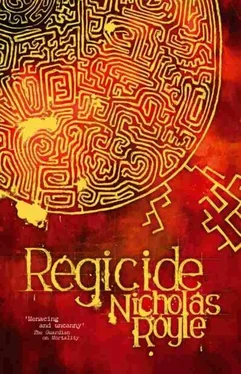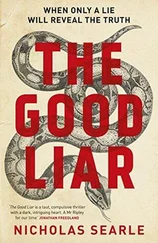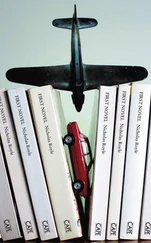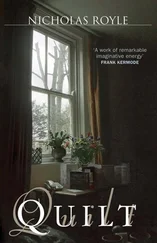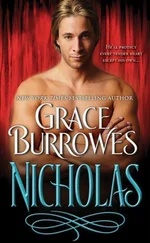The charge was regicide.
Specifically that I had planned and executed the assassination of the King by a single shot from a rifle while he was being driven through the City in his car on official duties.
There was a row of people sitting in a box marked Prosecution Witnesses. I’d never seen any of them before. There was no box of defence witnesses, no defence lawyer as far as I could see, just a barrage of prosecution lawyers and the judge, all of whom had spiral scars scratched on their foreheads.
The clerk of the court was already reading out special clauses that meant nothing to me. The prosecution counsel stood up and declaimed from his little podium. I had killed the King. These witnesses had seen me do it. The penalty was death. I should be taken from this court…
The proceedings seemed to be running away from me at an implausible speed. If I failed to intervene, the whole thing would be over without my having spoken a word.
‘Stop!’ I ordered. The courtroom fell quiet and everyone stared at me. Rows and rows of blank faces that seemed to extend beyond the natural confines of the room. In the public gallery I caught sight of Stella sitting just in front of Maxi. White Coat, cleaned up, and Gledhill were standing to one side by the exit doors, behind a cordon of policemen armed with batons. Everyone held their breath waiting for me to speak again.
I looked at the judge. He was dressed like his street-corner peers in a tight-fitting shiny black suit. The scar on his forehead caught a slanting ray of light from the windows high up in the courtroom wall.
‘What’s he doing?’ I asked, pointing at a burly man wearing headphones and bending over a cutting lathe. There was an acetate disc in position on his turntable.
‘Recording the proceedings,’ said the clerk of the court.
‘I’m speaking to the judge,’ I thundered, finding confidence from somewhere.
The judge himself spoke: ‘As the clerk said, the case is being recorded.’
I knew what would be on the disc when the verdict had been delivered and the condemned man taken away: forty-five minutes of silence. Ticks, hisses, booms and clicks but no witness testimonies, no impassioned plea of defence.
So, I had to win the case first time around. There could be no appeal.
‘Continue,’ said the judge with a vague hand gesture in the direction of the prosecution counsel.
The arrogant young lawyer picked up a book from the table in front of him.
‘This book,’ he said, brandishing what appeared to be my copy of Un Régicide at the court, ‘was found in the possession of the accused. As evidence linking him to the crime for which he stands accused it is damning.’
‘Stop,’ I cried again. ‘I want to speak.’
This seemed to take everyone by surprise. There was a collective rustle as all the figures in the courtroom turned towards me again. Row upon row of blank faces.
‘I don’t have a defence counsel so I’m going to defend myself.’ I looked around the court. No one spoke or moved. In the public gallery I glimpsed my mother’s face and my stomach turned over, but when I looked back she wasn’t there. It was just some anonymous bloodless face like a rolled-out lump of pastry. Could have been anybody. ‘I didn’t shoot the King…’ I began again before being interrupted.
‘Objection, Your Honour,’ said the prosecutor. ‘The accused did commit the offence. That is established fact.’
‘Objection sustained,’ the judge muttered.
I couldn’t believe my ears. ‘Objection,’ I shouted. ‘It is not fact. You will hear the facts now.’ Suddenly, despite my weak position and my physical restraints I felt I was in a position of power. Despite a ruling from the judge the prosecutor had fallen silent — his head was bowed over his desk — and the assembly was turned my way again.
‘To begin with, I did not kill the King. I have never owned a rifle and nor did I ever see the King being driven through the City.’ I looked around at my audience. The numbers in the public gallery had swelled and my mother’s face was once more amongst them. I felt encouraged. If she blamed me for what had happened, not only for the death of my father but also for what it had done to her, would she not be sitting in the prosecution witness box rather than the public gallery?
The court was hushed, waiting for me to continue. The prosecutor appeared to have frozen to the spot. Only the cutting engineer’s disc moved, producing a low hiss. I sensed the need to go further.
‘The King was dying. He was suffering from a terminal condition which he knew would continue to cause him more and more pain and discomfort the longer he lived. He debated with himself the rights and wrongs of taking his own life and reached the decision that it would be better to do so. What right did I have to alter that decision at the last moment?’
A broad band of pain stretched across the front of my skull. Sweat tickled my neck and ran down my back. I couldn’t massage my temples or run a handkerchief over my face for even temporary relief. When I looked up at the public gallery it seemed impossibly distant, as if viewed down the wrong end of a telescope. My head started to spin. I looked at the prosecution witness box and it seemed as if its occupants had swopped positions with each other, but I couldn’t be sure. The prosecutor still stood with his head bowed. The judge had turned his head to bathe his face in the light streaming in from the high window.
‘I didn’t kill the King,’ I repeated. ‘He killed himself. I just let him do it. In the circumstances it was the right and most humane thing to do.’
In the public gallery my mother’s head was nodding slowly like a huge white bell. It was the only movement in the entire courtroom.
‘It was the right thing to do,’ I repeated.
If I really believed it, however, why when I looked back at the judge did I see my father’s face swinging from side to side behind the windscreen of his exhaust-clogged car? I blinked and shook my head and when I looked again I saw the judge shaking his head slowly and making an ambiguous gesture with his hand. The prosecutor, upon seeing this sign, slipped back to life, along with the rest of the court. It was like a piece of film that had been stuck in the gate of the projector slowly being freed and rolling again. The sound slurred back up to the correct speed and full volume. Witnesses stood up one after another in the prosecution witness box and rattled off accounts of how they had seen me holding the rifle, training its sights on the car that was carrying the King, squeezing the trigger. They saw the rear passenger window of the car shatter and the King slump forward inside. They saw me run away from the scene of the crime and collapse on the tow path of one of the City’s canals.
‘No, no,’ I shouted. ‘None of this is true. It’s not true. I didn’t kill him.’
I looked at the last witness, the one who’d seen me on the canal bank. He was a middle-aged man with white hair. I just bet he kept a dog as well. The prosecutor was summing up. All was quiet in the public gallery; my mother had disappeared. The judge laid his right arm across his own chest then pointed at my head. I looked up at the bright window and heard the judge’s gavel crash onto the leather stopper on his desk and suddenly the courtroom was in uproar. Officers freed my ankles and pushed me out of the dock. The crowd on the floor of the court parted to let us through. Bystanders and court officials shouted insults and spat at me as guards prodded and kicked me out into the open air where a mass of people had already gathered. They chanted ‘King killer, King killer’ and moved with the awesome, graceful give-and-take of the sea.
Читать дальше
